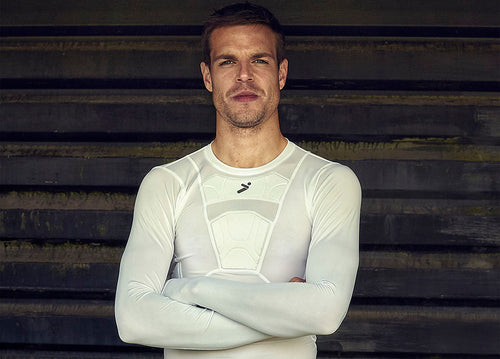"Le matériel Storelli est confortable. Je vois l'objectif de la marque. Il s'agit d'offrir une protection supplémentaire aux joueurs, sans pour autant oublier le confort. C'est un produit assez léger et on n'a pas l'impression de le porter lorsqu'il est enfilé, ce n'est donc pas une distraction.




















